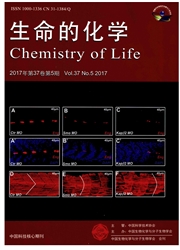

 中文摘要:
中文摘要:
目的构建一种压电石英晶体微天平(QCM)DNA传感器多聚T尾型探针敏感膜制备新方法,同时对其重要影响因素进行优化探讨。方法设计一种多聚T尾型探针,固定在压电QCMDNA传感器晶振表面,对探针固定浓度、杂交温度和杂交时间等因素进行实验研究,进一步将构建的多聚T尾型探针DNA传感器和普通探针DNA传感器用于铜绿假单胞菌检测,比较两种传感器的频率响应性能,同时对该压电QCMDNA传感器的再生性能进行研究。结果探针最佳固定浓度为2.0μmol/L,最适杂交温度为40℃,最适杂交时间为90min;多聚T尾型探针DNA传感器的响应性能显著大于普通探针DNA传感器(P〈0.05),可以重复使用7次。结论基于多聚T尾型探针的压电QCMDNA传感器,具有杂交效率高、技术难度低、频率响应性能高等优点,在压电QCMDNA传感器基因检测领域有较好的应用前景。
 英文摘要:
英文摘要:
OBJECTIVE To develop a new type of piezoelectric quartz crystal microhalance (QCM) DNA sensor based on poly T tailed probes. METHODS The poly T tailed probes were immobilized on the gold surface of DNA sensor with self-assembly method. The concentrations of the probes, temperature and time of hybridization were optimized respectively. In addition, we detected the PCR products of Pseudornonas aeruginosa with both poly T tailed probes based and common piezoelectric QCM DNA sensor to assess the difference of frequency shift between the two sensors. RESULTS The optimum immobilization yield was obtained at 2. 0 μmol/L. The optimum hybridization temperature was 40℃ and the optimum hybridization time was 90 min. The response performance of the poly T tailed probes based piezoelectric quartz crystal mierobalance DNA sensor was better than that of common DNA sensor. The sensor could be reused for 7 times. CONCLUSIONS The poly T tailed probes based QCM system we designed has the advantages of high efficiency hybridization, easy to operate, and good response performance. Thus it can be applied in gene detections using QCM DNA sensors.
 同期刊论文项目
同期刊论文项目
 同项目期刊论文
同项目期刊论文
 期刊信息
期刊信息
